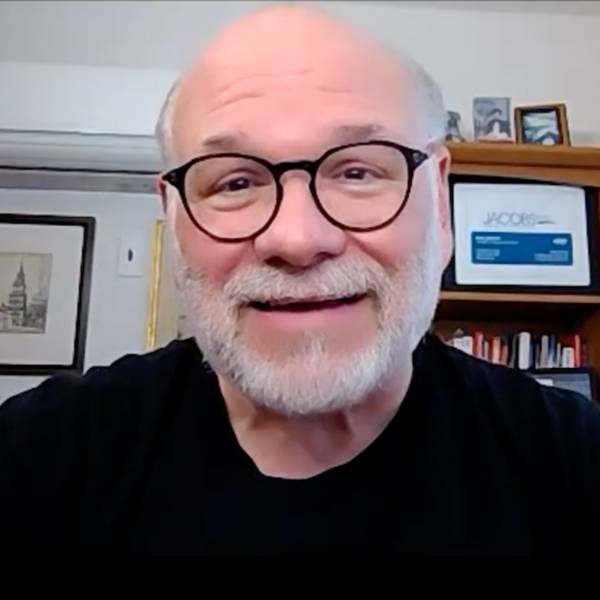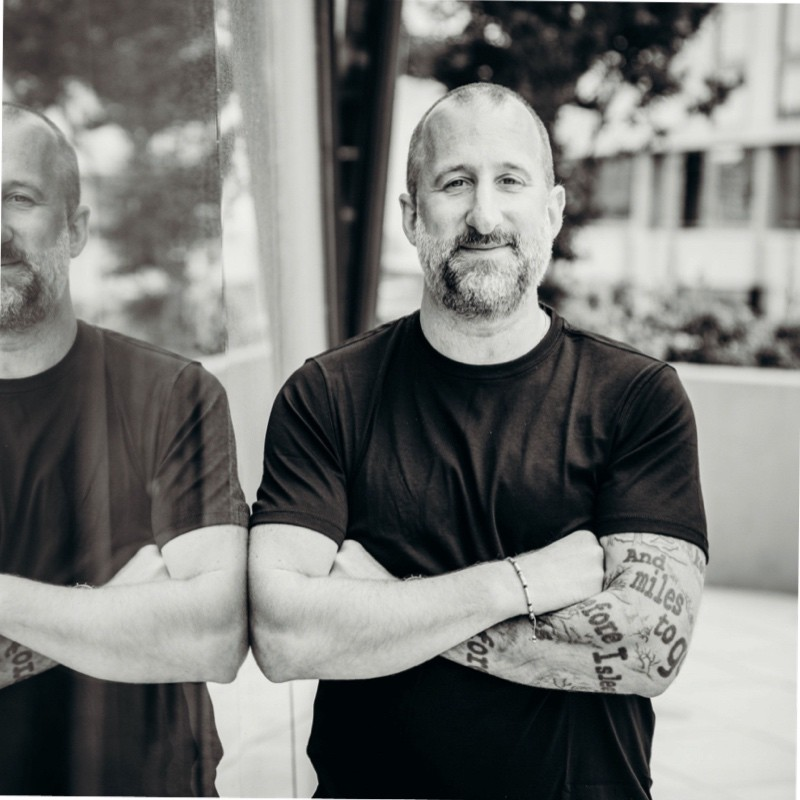Andy Pray on Optimism, Underdogs and Wild Signal
By Ken Jacobs
November-December 2025
After more than a decade leading the Brooklyn-based agency Praytell, Andy Pray stepped down this past August to launch a new firm, Wild Signal — a venture built around AI, creativity and culture.
Before founding Praytell in 2012, Pray held leadership roles at RFI Studios and Ruder Finn, following an early career as an on-air reporter and producer for CBS television stations in Nebraska, Wyoming and San Francisco.
In this conversation, Pray reflects on optimism as a leadership strategy, lessons from his preacher father, and what it means to “leave nothing to chance” in today’s fast-changing communications landscape.
Optimism is a choice. Frankly, declaring it publicly keeps me from falling into the tractor beam of negativity. Leading with optimism is like starting above sea level rather than kicking just to get there.Your LinkedIn profile says you’re both an underdog and an optimist. How have those impacted your leadership style and success?
As for being an underdog, I’ve always had that chip on my shoulder — and I hope I never lose it. There’s always someone smarter, faster or more entitled. I like that fact. It motivates me.
At Wild Signal, my mantra has been: Leave nothing to chance. It’s an absence of entitlement, whether you’re stepping up to bat for the first time or already standing on third base.
I love that your dad, whose last name was also Pray, was a preacher. How did his work influence you as a leader?
Being Pastor Pray’s son is an incredible blessing. We couldn’t be more opposite in some ways, which is humbling, but the overlaps are striking.
Every Sunday, he had a new sermon, a new message, a new “pitch.” That’s not so different from what we do — motivating, persuading, (hopefully) inspiring.
Whether he was addressing a small church in Montana during a blizzard or raising funds for a new steeple, his passion for both people and performance left a mark.
He’s also the best writer I’ll ever know. ChatGPT once told me I picked up a few of his stylistic quirks, and I’ll happily take that inheritance.
Earlier this year, you wrote a widely commented-on LinkedIn post about not being everyone’s cup of tea. What compelled you to write that?
Like most posts that hit, I didn’t overthink it. (Maybe that’s the secret to LinkedIn?) But it reflected something I’d been working on for a while.
For too long, I tried to be universally liked. Newsflash: I’m not. Coming to terms with that has been liberating. The traits that resonate deeply with some people are the exact same ones that rub others the wrong way. That duality is real for all of us and embracing it has been a huge unlock in doing the best work of my career.
You recently made a big transition from agency founder to entrepreneur. Tell us more about your new venture.
AI is transforming communications in ways long overdue. At Wild Signal, we’re starting with AI search — helping brands show up in powerful, business-driving ways in answer engines like ChatGPT and Perplexity.
It’s happening right now, and the opportunity is too big not to hammer. But we won’t stop there. Our vision is to rebuild the operating system of creative communications from the bottom up, instead of slapping AI tools onto the old agency model and hoping they stick culturally. It’s too tantalizing a moment not to go all in. I’m all in.
You started in the PR profession around two decades ago. What do you know about leadership now, that you wish you knew then?
That your job is to create space where people feel comfortable, whole and seen. Ironically, you don’t always get that same privilege as a leader.
Leadership requires discipline in what you show and what you keep private. In some ways, every leader is a sociopath of design — deciding what parts of themselves to reveal. The best leaders also know that identity outside of work is essential.
The more fully formed your life is beyond the office, the steadier your leadership inside it. This is absolutely my biggest place of development as a leader and a human. I’m working on it.



